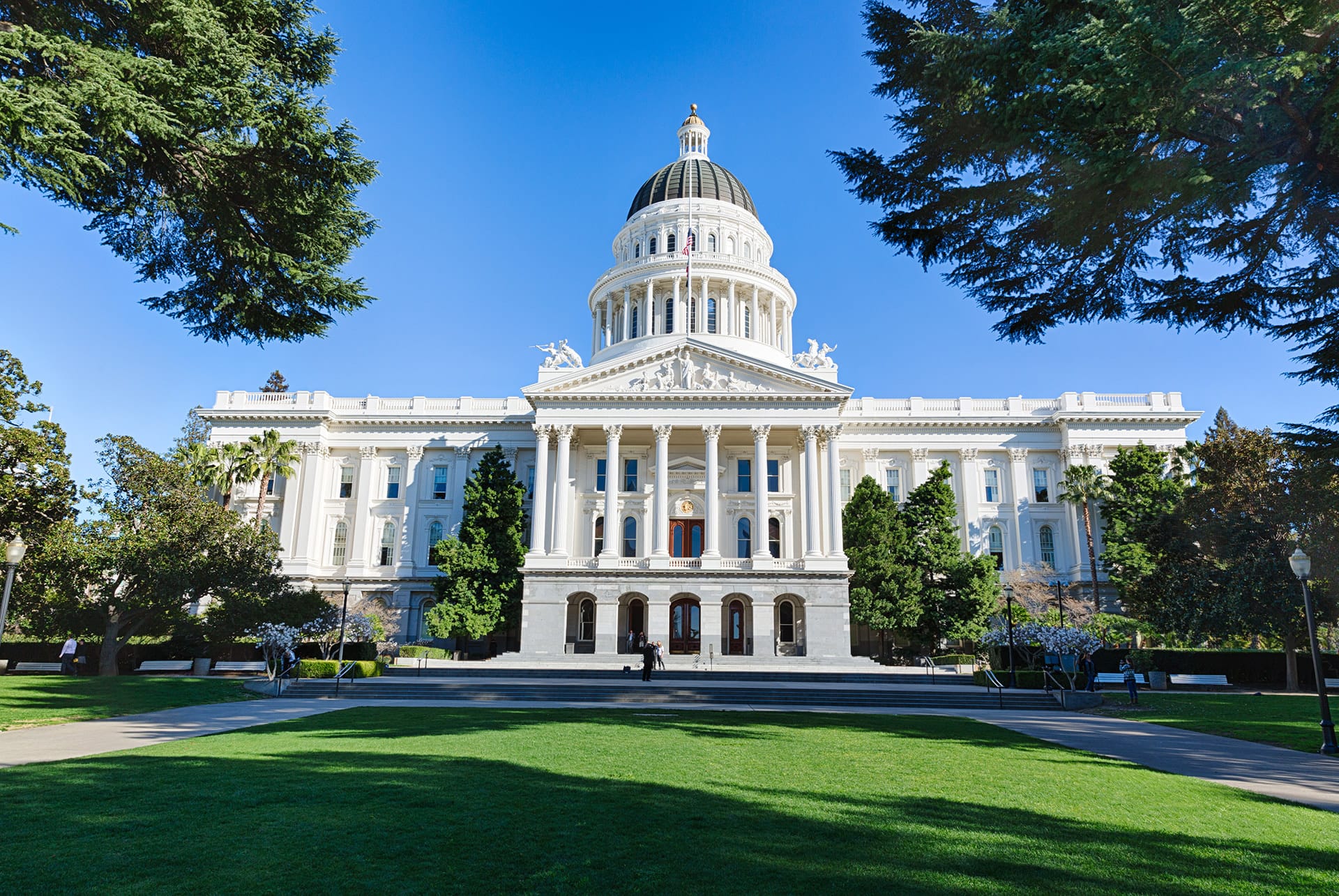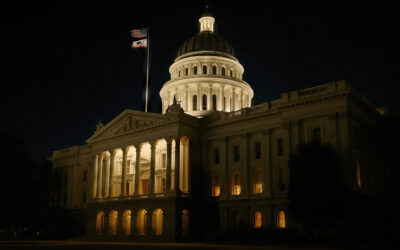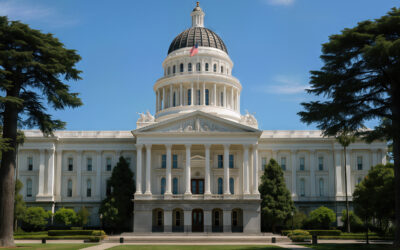The bill introduction deadline for the second half of the 2019-2020 Legislative Session occurred on February 21, 2020. Just under 2,300 bills were introduced. Here are some bills that are likely to be of interest:
Early Learning
- AB 2500 (McCarty) – Transitional kindergarten: average daily attendance.
This bill would delete the provision that prohibits a student admitted to a transitional kindergarten who has their birthday after December 2 from generating average daily attendance (ADA) or being included in the enrollment or unduplicated student account. - AB 2709 (Weber) – Full-day kindergarten.
This bill would require, commencing with the 2023–24 school year, schools in school districts offering kindergarten and charter schools serving pupils in early primary grades to implement at least 1 full‑day kindergarten program. - SB 1153 (Rubio) – Elementary education: kindergarten.
This bill, beginning with the 2021–22 school year, would require a child to have completed one year of kindergarten before that child may be admitted to the first grade, thereby imposing a state-mandated local program.
Governance and Operations
- AB 2472 (Jones-Sawyer) – Public schools: accountability: county superintendents of schools.
This bill would replace the use of the API to identify schools for a Williams review with a process requiring the State Superintendent to identify schools for review if they have been identified for comprehensive support and improvement (CSI) or additional targeted support and improvement (ATSI) under the Every Student Succeeds Act (ESSA) or identified as low-performing under the ESEA. - SB 1125 (Portantino) – Local educational agencies: educational programs. This will likely be the vehicle that will contain cleanup provisions for last year’s school start time bill (SB 328 – Portantino). As currently drafted, the bill would require the CDE to review funding for all after school programs offered in the state, including, but not limited to, the After School Education and Safety Program (ASES) and programs supported by federal funding. Additionally, the bill would, through regulation, provide flexibility to school districts to use funds provided for after school programs for before school programs if that flexibility is not prohibited by the After School Education and Safety Program Act of 2002.
Human Resources
- AB 1844 (Chu) – Paid sick leave: behavioral health conditions.
This bill would expand the list of purposes an employer must provide paid sick days for, to include the behavioral health condition of, or preventive care for, an employee or an employee’s family member. - AB 2682 (Medina) – Certificated school employees: probationary employees.
This bill would, among other things, remove the exemption for districts with less than 250 ADA from the requirement that a person, who has been employed by the district for two complete consecutive school years in a certificated position and who is reelected for the next succeeding school year, be classified as a permanent employee of the school district. - SB 796 (Leyva) – School and community college employees: absences due to illness or accident.
This bill provides that a certificated or classified employee who has exhausted all available sick leave and continues to be absent from their duties on account of illness or accident for an additional period of up to five school months is entitled to their full salary for any of the additional five months in which the absence occurs. - SB 805 (Portantino) – School employees: leaves of absence: natural disasters and evacuation orders. Would prohibit the governing of a school district from requiring an employee to use sick, vacation, or other paid leave if the school is forced to close because of a natural disaster or an evacuation order, or if the employee is unable to report to work because they reside in an area affected by a natural disaster or that is subject to an evacuation order.
Pupil Health
- AB 1838 (Chu) – Pupil attendance: excused absences: behavioral health.
This bill would include as another type of required excused absence an absence that is due to the behavioral health of the pupil or for the purposes of having behavioral health services rendered. - AB 1849 (Low) – Pupil attendance: excused absences: mental or behavioral health. This bill would include as another type of required excused absence an absence that is for the benefit of the mental or behavioral health of the pupil.
- AB 2668 (Quirk-Silva) – Integrated School-Based Behavioral Health Partnership Program.
This bill would establish the Integrated School-Based Behavioral Health Partnership Program to provide early intervention for, and access to, behavioral health services for pupils. The bill would authorize a county behavioral health agency and the governing board or governing body of a local educational agency (LEA) to agree to collaborate on and implement an integrated school-based behavioral health partnership program and to develop a memorandum of understanding outlining the requirements for the partnership program. - AB 2798 (Maienschein) – Pupil mental health issues: early identification: in-service training.
This bill would require each school district, county office of education (COE), and charter school to provide in-service training to certificated employees and classified staff on the early identification of pupil mental health issues. - SB 793 (Hill) – Flavored tobacco products.
This bill would prohibit a tobacco retailer from selling, offering for sale, or possessing with the intent to sell or offer for sale, a flavored tobacco product - SB 849 (Portantino) – Pupil attendance: excused absences: mental or behavioral health.
This bill would include as another type of required excused absence an absence that is for the benefit of the mental or behavioral health of the pupil. - SB 1369 (Wilk) – Pupil mental health: emergency services.
This bill would establish within California Department of Education (CDE) the Emergency Program for Pupil Mental Health to provide grants to LEAs to provide mental health services following a qualifying event, either natural or manmade, that is likely to cause sustained and ongoing pupil trauma, as provided.
School Funding
- AB 1834 (Weber) – Education finance: local control funding formula: supplemental and concentration grants.
This bill would require CDE to develop a tracking system for LEAs to use to report the types of services on which they are spending their supplemental and concentration funding. LEAs would be required to, beginning July 1, 2021, use this system to annually report this information. - AB 1835 (Weber) – Education finance: local control funding formula: supplemental and concentration grants.
This bill would require LEAs to identify unspent supplemental and concentration grant funds in their Local Countrol and Accountability Plan and require the unspent funds to continue to be used to increase and improve services for unduplicated students in out years. - AB 1837 (Smith) – Education finance: emergency average daily attendance.
This bill would extend the application of ADA protections for established for certain declared emergencies to any state of emergency declared by the Governor. - AB 2052 (O’Donnell) – California Career Technical Education Incentive Grant Program: local matching funds.
This bill would replace the 2:1 match requirement for LEA local dollars under the CTEIG with a 1:1 match. - SB 795 (Beall) – Affordable Housing and Community Development Investment Program.
Would establish in state government the Affordable Housing and Community Development Investment Program and its Committee to administer the program. The Committee will oversee and approve plans for affordable housing projects around the state, and will authorize counties to use Education Revenue Augmentation Fund (ERAF) dollars to pay for the projects. - SB 884 (Dodd) – Education finance: emergencies: public safety power shutoffs.
This bill would add public safety power shutoffs to the list of emergencies for which an LEA could be eligible for ADA protections. The bill would also establish the Disaster Relief Instructional Recovery Program, which would allocate funding to eligible LEAs to make up instructional days lost due to an emergency or other extraordinary conditions.
Special Education
- AB 1914 (O’Donnell) – Special education: inclusive education.
This bill would establish the Supporting Inclusive Practices project to increase opportunities for students with exceptional needs to meaningfully participate in general education classrooms. Required efforts would include requiring CDE to issue guidance on the establishment of inclusive early childhood education programs and requiring CDE and CTC to develop guidance on the staffing of inclusive classrooms. - AB 2291 (Medina) – Special education funding.
This bill would (1) equalize special education funding to the 95th percentile, (2) establish the high-cost service allowance to provide additional funding to SELPAs on the basis of the number of students are severely disabled, and (3) provide funding for 3-4 year-olds with exceptional needs served by a SELPA based on 3x kindergarten ADA.




0 Comments